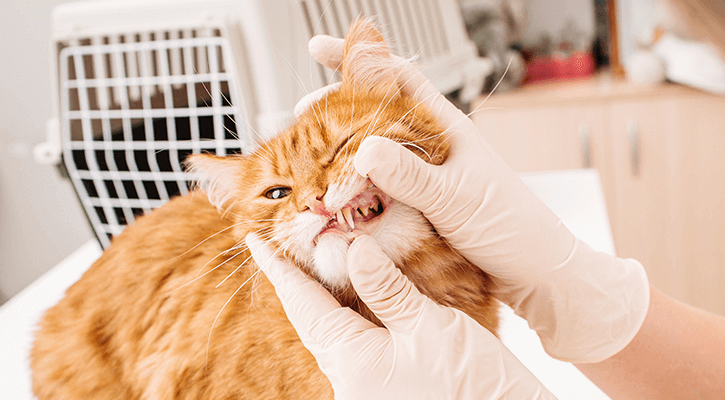
Dentistry
Imagine if you never brushed your teeth or had them cleaned. Pretty frightening, right? As you can imagine, things would eventually start to go very, very bad inside your mouth: teeth would rot and decay, gums would become inflamed and infected. Bacteria from those rotting teeth would eventually travel into your bloodstream and could cause other serious health problems. And we haven’t even mentioned the daily, debilitating pain.
Pet Dental Care at EDGE
Edge Animal Hospital provides advanced dental care to our patients through routine cleaning – which includes scaling the surface of the teeth to remove tartar buildup from both below and above the gum line.
Their veterinarian will assess the health and stability of each individual tooth with the help of dental X-rays and dental probing. Once the plaque buildup is removed and any extractions needed are complete, our healthcare team will polish the teeth to smooth the surface and deter additional plaque formation. Now that’s something to smile about!
Dental Care Q & A
How often should my pet’s teeth be cleaned?
AAHA recommends a professional cleaning and oral evaluation annually. This recommendation may vary depending on the individual pet, frequency and type of at-home care, and any history of periodontal disease.
What are some signs and symptoms of dental disease?
Some signs are subtle as our pets do not typically cry out in pain with dental disease. Bad breath is the most common complaint among pet parents. Reddened gums or bleeding of gums would be cause for concern, as well as visibly fractured or chipped teeth. If your pet preferentially chews on one side of their mouth over another, or if there is decreased interest in chews that they previously loved.
How do I know if my pet will have a reaction to anesthesia?
Most pets do very well with anesthesia. A good physical exam and routine lab work prior to anesthesia helps to identify any potential risks. It’s important to disclose all medications and supplements – prescription or over-the-counter as well. Your pet is closely monitored using similar equipment to human hospitals that allows us to quickly identify any changes in your pet’s stability under anesthesia well before a potential crisis.
How can I care for my pet’s teeth at home?
The gold standard is daily teeth brushing. This can sound daunting, but in reality many pets can find this a positive experience. Daily dental chews, treats, and dental diets can help reduce plaque build up as well. It is important to note that very hard chews such as real bones, nylabones, antlers, and similar products that are so hard there is no “give” can actually damage and fracture teeth while your pet is chewing. Therefore, these types of chews should be avoided.
Check out VOHC.org for approved dental products.
Dental Care in St. Petersburg, FL
To make an appointment for a dental exam or cleaning, call us at (727) 470-6949.
